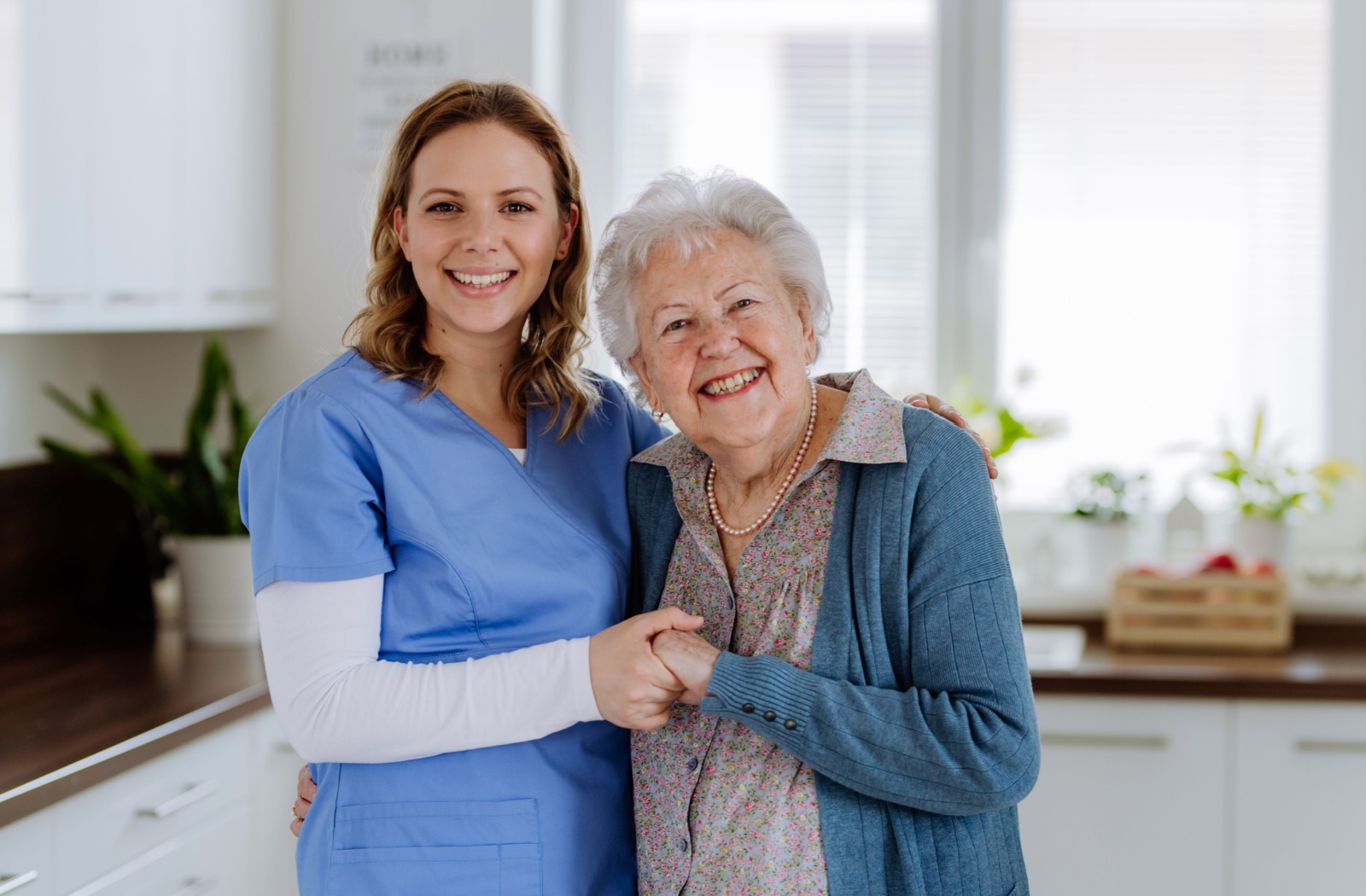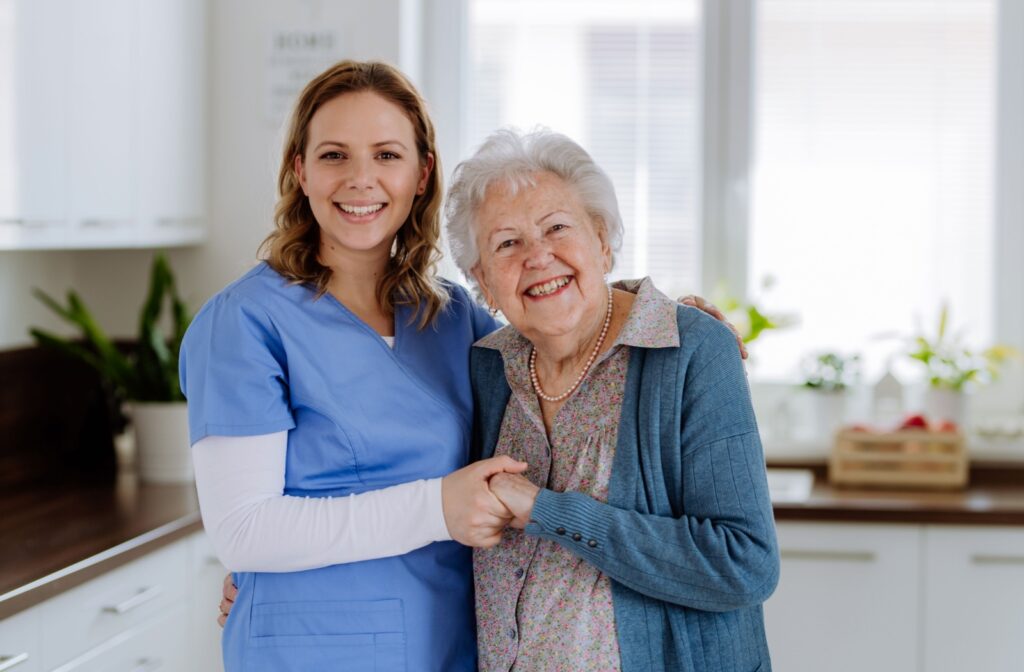As we grow older, our routines often begin to shift, and sometimes, this leads to changes in independence. Whether it’s needing help with cooking, bathing, or remembering medications, many older adults eventually need some form of support. These needs tend to grow with age, and assisted living communities are designed to meet them consistently.
These include:
- Hygiene, such as bathing and grooming
- Nutrition, including meal preparation and hydration
- Home safety, like maintaining a secure living environment
- Socialization, fostering connections and emotional well-being
- Mobility, ensuring the ability to move safely and independently
- Physical health, through regular medical care and fitness
With assisted living, you can give your loved one the care they deserve. A team of professional caregivers can step in and help with any challenges your loved one faces. This is a simple and effective way to meet your loved one’s daily needs. This support doesn’t mean giving up independence—it means finding the care needed to keep life safe, comfortable, and fulfilling.
Hygiene
Staying clean and comfortable is important for both health and dignity. However, some older adults deal with physical changes that make daily hygiene more challenging. Mobility challenges, arthritis, or even fatigue can all play a part.
Eventually, tasks like bathing and grooming may be difficult to perform independently. In an assisted living setting, these routines are handled with care and discretion. Staff members are trained to help while preserving privacy, which is a wonderful way to maintain dignity.
Nutrition
Balanced meals help older adults maintain energy, strength, and overall physical health. But shopping, cooking, and cleaning up can become difficult over time. Changes in appetite, dietary restrictions, or medical needs also play a role.
Assisted living communities take the guesswork out of eating well. Residents enjoy regular, home-style meals that meet their individual health needs. Mealtime also becomes a time for socialization, which can even help reduce feelings of isolation.
Home Safety
Many older adults prefer to stay active and independent at home. But without the right safety features, daily life can come with unnecessary risks. Small slips or hard-to-reach spaces can turn routine tasks into challenges—or even downright dangerous situations.
Here are some simple safety features that support senior independence:
- Grab bars
- No-step showers
- Wide doorways
- Non-slip flooring
- Emergency call systems
- Proper lighting
- Clutter-free walking paths
All of these are common in assisted living communities. By removing hazards and adding smart design, assisted living helps residents feel more comfortable moving around on their own.
Socialization
Loneliness can impact both emotional and physical health. For older adults, daily interaction plays a key role in boosting mood, reducing stress, and staying mentally active. But staying connected isn’t always easy.
In assisted living communities, events and shared spaces help build social connections. Some popular activities include:
- Group exercise classes
- Holiday celebrations
- Book clubs
- Music nights
- Crafts and hobbies
- Local outings
- Movie screenings
Having these social outlets built into daily life makes it easier for residents to stay engaged without needing to plan or travel far.

Mobility
Getting around comfortably is one of the most important aspects of aging well. But joint pain, balance concerns, or recovery from injury can all affect a person’s ability to move safely. Over time, small struggles with mobility can lead to bigger challenges.
Daily support with mobility helps older adults stay active without putting themselves at risk. Whether it’s walking to meals, getting out of bed, or joining activities, this type of help keeps movement a normal part of the day. Assisted living offers a way to remove the barriers your loved one faces to help them stay independent—despite their physical challenges.
Physical Health
Ongoing medical care is an important part of senior care. Even small health issues can escalate if left unmonitored. Older adults often need help managing medications, monitoring chronic conditions, or coordinating appointments. That’s why senior living communities use several systems to help.
Assisted living offers support with:
- Medication reminders
- Blood pressure checks
- Diabetes management
- Physical therapy support
- Help scheduling doctor visits
- Care coordination with outside providers
- Monitoring general well-being
This proactive approach helps residents maintain their health while avoiding unnecessary stress.
Is It Time to Try Assisted Living?
Daily needs don’t disappear with age—they just evolve. From personal care to nutrition, communities like ours at Renna Senior Living take care of your loved one’s daily needs. This way, your entire family can have the peace of mind you deserve.
It’s never easy to make care decisions for someone you love. But when daily routines start to feel overwhelming, it might be time to explore new options. So, what are you waiting for? Book a tour with our community today to learn more about assisted living!



